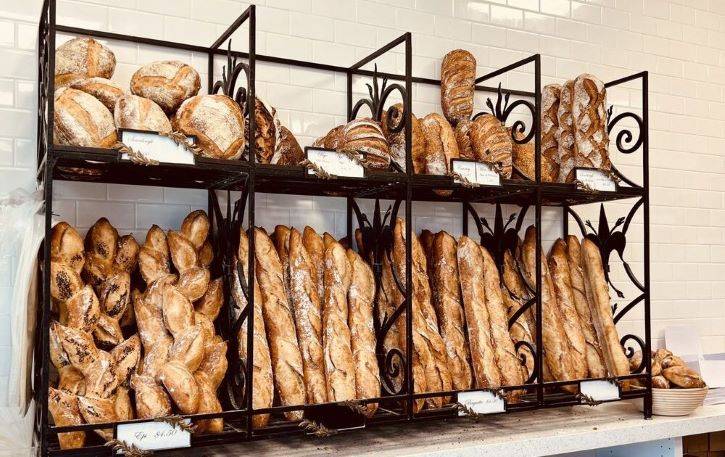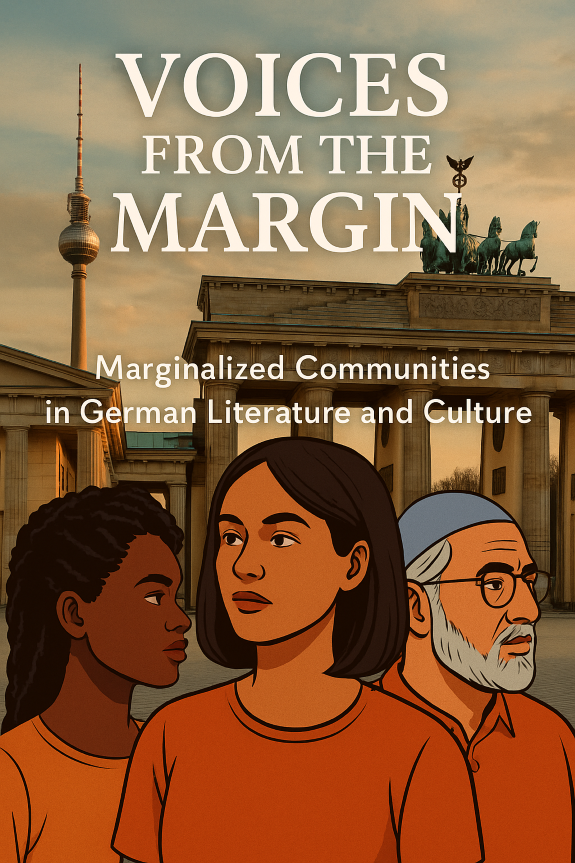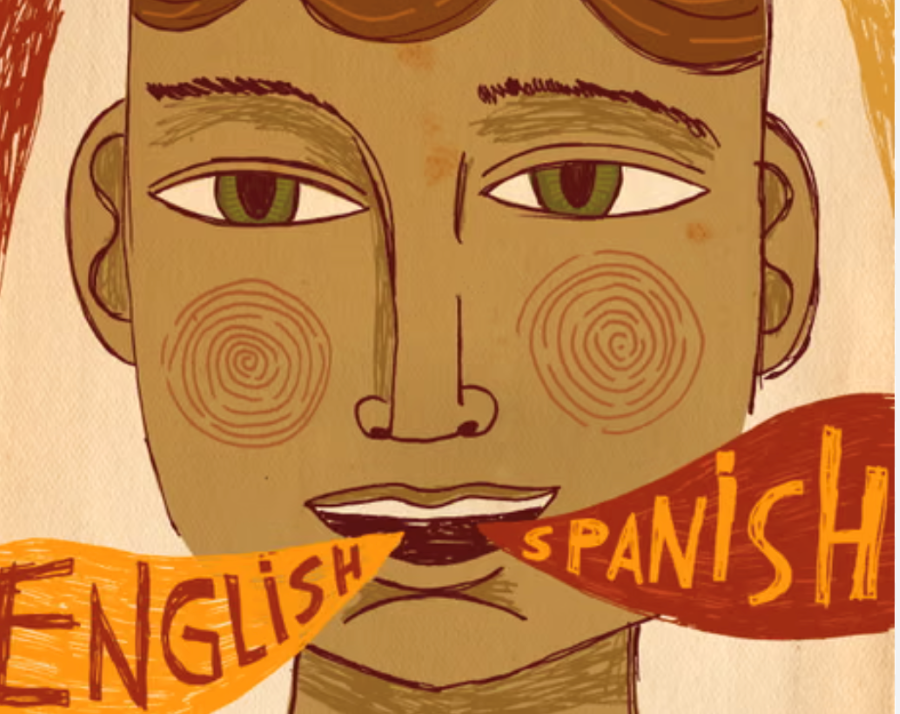- K-State home
- Modern Languages
- Academics
- Areas of Study
- Course Descriptions
Modern Languages Course Descriptions
Unsure where to start? Visit us during Open Advising hours in the KLC (EH 001), to learn about our language placement, programs, study abroad, scholarships, and more.
Many of our courses count toward language minors and majors, but also the Primary Text Certificate or the Linguistics Certificate, as well as many K-State Core requirements, such as #6 - Arts & Humanities; #7 - Free Electives, Fine Arts, U.S. Multicultural Overlay, Global Perspectives Overlay
Course Descriptions by Language
Click the drop-down menu below to discover course descriptions for all languages for summer 2026, fall 2026, & spring 2027, and see which academic requirements they fulfill. Unless stated otherwise, all courses are worth 3 credits.
|
ARAB 101 - Arabic I
In-person and online |
The aim of the first half of this course is to learn the shapes and sounds of Arabic letters and vowels and develop the ability to write and read words and numbers. The second half of the course focuses on introducing basics in Arabic grammar essential to compose short, common phrases for communication. Sets of vocabulary that include pronouns, verbs, nouns, adjectives, prepositions and question words will be covered that enable construction of short, meaningful phrases and sentences in oral and written communications.
|
|
ARAB 102 - Arabic II
In-person and online |
This intermediate Arabic course focuses on developing skills in text reading, understanding written and spoken Modern Standard Arabic and in writing and speaking more complex sentences. Emphasis will be on memorizing current usage vocabulary, and understanding details of the principal grammatical rule communications. used in formal.
|
|
ARAB 201 - Arabic III
In-person and online |
The aim of this course is to further advance the reading and listening comprehension and expand the capacity to communicate through speaking and writing in Arabic. Through the acquisition of much of much more Arabic vocabulary and their other related derived words and utilizing them in grammatically correct context.
|
|
ARAB 301 - Arabic IV
In-person and online |
Arabic 4 focuses on further advancing communications skills in Arabic language through reading and listening comprehension and conveying information through speaking and writing. About 1500 new words in formal Arabic will be studied to add to the vocabulary inventory already acquired in previous courses. Students will rely increasingly on their cumulated learning to translate reading and listening passages and ask, answer and express thoughts in Arabic. In addition, various aspects of the Arabic and Islamic cultures and traditions will be mentioned in relevance to the language topics covered in the course. This advanced course focuses on the ability to communicate confidently and gain more understanding of the different cultures and practice within the region of the Middle East.
|
|
ARAB 540 Middle East Studies |
NEW FALL 2026: This course offers a comprehensive study of the Middle East, exploring its languages, cultures, histories, and civilizations. Students will examine the region’s geographic influences, the rise and legacy of major empires, and the cultural and religious traditions that shape its identity today. Through reading, discussions, maps, multimedia sources, students will gain a balanced and comprehensive understanding of the Middle East as a vital crossroads of human civilization. Key topics include ancient Mesopotamia, the Islamic Golden Age, trade routes and empires, colonialism and modern state formation, cultural and linguistic diversity.
NOTE: Course taught in English, no pre requisite in the Arabic language needed.
|
|
CHINE 101 - Chinese I
|
Fall 2026: An introductory course to Mandarin Chinese, focused on the training of everyday use of language and the promotion of cultural awareness. No prior Chinese learning experience is required. In this course, you will do intensive practice in pronunciation and tones; engage in fun, short role-play activities for simple, everyday topics; learn about interesting stories/mythology on Chinese characters; and enjoy a virtual tour in China. Counts toward:
|
|
CHINE 200 - Chinese II
|
SPRING 2027: Continuation of Chinese 1. In this course, you will learn to converse on more varied conversational topics in Chinese; engage in basic reading and character writing practice; and become familiar with the traditional Chinese festivals and their customs. Counts toward:
|
|
CHINE 201 - Chinese III
|
Fall 2026: Continued development of functional skills for everyday interaction and promotion of intercultural awareness. In this course, you will handle more challenging scenarios in daily communication; engage in more intensive reading and basic writing practice; learn about the Chinese Zodiac; and enjoy documentary shows about Chinese cuisine and tourist sites. Counts toward:
|
|
CHINE 301 - Chinese IV
|
SPRING 2027: Continuation of Chinese 3. In this course, you will learn to handle communicative scenarios with complications; prepare collaborative, oral presentations on lesson topics; practice extensive reading and engage in more descriptive and expository writing; and enjoy popular Chinese TV dramas. Counts toward:
|
|
CHINE 501 - Chinese V
|
Fall 2026: Further development of the communication skills, enhancement of vocabulary and intensive practice in reading and writing. In this course, you will compare and describe the differences in many aspects of Chinese and American cultures; progress from sentence-level language to pragraph-level discourse; engage in argumentative writing; and enjoy classic Chinese movies. Counts toward:
|
|
CHINE 502 - Chinese VI
|
Further enhancing students’ language skills with a manageable degree of challenge and deepening their understanding and discussion on cultural and social aspects about China. In this course, you will discuss social issues in or related to China; read newspaper articles with guidance; complete individual, oral projects to express opinions and propose suggestions on social issues in China; and engage in more argumentative writing in Chinese. Counts toward:
|
|
CLSCS105 - Latin and Greek for Scientists online asynchronous |
The course is designed specifically to provide students of the biological sciences a background in Latin and Greek roots of scientific terms. Emphasis on prefixes, suffixes, and word derivations. No prior knowledge of either Latin or Greek is required.
|
|
CLSCS 309 - Introduction to Classical Literature in Translation: Greek and Roman Mythology |
An introduction to Greek and Roman mythology and modern retellings of these ancient narratives. Students will encounter gripping stories about war, power, class, family, duty, foreignness, love, and death. By completing thematic and creative reflections, students will have the opportunity to respond critically and constructively to primary texts and to produce their own original receptions of ancient Greece and Rome. Counts toward:
|
|
CLSCS 501 - Topics in Classical Studies: Love in the Time of Pirates |
In this course, we will read the seven novels that survive (more or less) from antiquity. Five of these novels explore the boundaries of idealized, perfect love; perhaps not coincidentally, the other two explore the depths of human depravity. In our readings of the novel, we will discuss how the first novelists invented the genre as a useful tool for discussing not just love, but gender roles, cultural and ethnic identity, religion, and how best to lie to a pirate. Counts toward:
|
|
FREN 101 - French I Offered Fall and Spring |
Fall 2026 & SPRING 2027: Designed for students with no prior French language experience, or less than one year of prior language study. Students will develop basic language skills and cultural awareness to discuss daily habits, personal information, and communicate in simple everyday situations in French-speaking communities. Conducted in French through speaking, listening, reading, and writing activities.
|
|
FREN 102 - French II Offered Fall and Spring |
Fall 2026 & SPRING 2027: Continuation of French I. Designed for students with one semester of college French or 1-2 years of high school French. Students will build on basic language skills and cultural awareness to relate personal experiences, give recommendations, and interact in uncomplicated situations in French-speaking communities. Conducted in French through speaking, listening, reading, and writing.
|
|
FREN 103 - Beginning Accelerated French Offered online, summer, on sufficient demand |
Jump start your French learning, or get a quick review of beginning French concepts, in this accelerated French class. This online course covers the material of French 1-2 (101-102) in a single course, allowing you continue your French journey with French 3 (FREN 201). This course is designed both for motivated beginners and for students wanting a review of foundational French concepts in an active environment, focused on improving your spoken and written French. Students will develop basic language skills and cultural awareness to discuss daily habits, personal information, and communicate in simple everyday situations in French-speaking communities. Conducted in French through speaking, listening, reading, and writing.
|
|
FREN 201 - French III Offered Fall and Spring |
Fall 2026 & SPRING 2027: Continuation of French 102. Designed for students with two semesters of college French or 2-4 years of high school French. Enhances skills in reading, listening, speaking, and writing to express themselves creatively in French in straightforward social situations. Students engage with and analyze a variety of content including films and short stories. Conducted in French.
|
|
FREN 301 - French IV Offered Fall and Spring |
Fall 2026 & SPRING 2027: Continuation of French 201. Designed for students with three semesters of college French or 3-5 years of high school French. Overall review of grammatical forms and development of reading, writing, listening, and speaking skills in cultural contexts. Conducted in French.
|
|
FREN 503 - French Composition & Grammar
|
Grammar and Composition through reading This course aims at the study of French grammar and writing through reading. This course allows students to strengthen their linguistics skills in French and combines multimodal compositions in a variety of genres (e.g., description, narration, etc.) through the study of texts taken from real-world Francophone contexts with applied learning experiences.
|
|
FREN 515 - History of French Culture
|
History of Francophone Culture through Food In this French language and culture course, students will analyze and interpret the importance of food and gastronomy and its history in the French and other Francophone cultures while participating in a range of oral and written communicative activities. Through a variety of literary texts from authors; through film clips; and through other multimedia resources, students will recognize the interdisciplinary and pervasive nature of food systems, the food industry, food practices, and food culture.
|
|
FREN 716 - Topics Contemporary French Literature
|
Topic: War, trauma, and the self This course explores French literature since 1900 with a particular focus on narratives of war, trauma, and the self. Through poetry, prose, theater, and film, we will discover the developing ways that French authors found to tell stories about themselves and their experiences. This course is in French. It is appropriate for students who have taken at least one course at the 500-level. It counts for the literature requirement for the French major or minor. This course will work on developing reading, writing, listening, and speaking skills while reading (relatively short) literary texts in French. It is a 700-level course, so we also develop skills in reading secondary sources.
|
|
FREN 731 - Advanced French for the Professions |
Working and Living in French This course will emphasize the vocabulary, cultural knowledge, and linguistic skills and tools that you will need in order to succeed by defining the key role of gender, race, and foreignness (or immigrant status) in determining success in (and barriers to) the French work environment, articulate how the histories and hierarchies shape power dynamics inherent to French and Francophone institutions in France and beyond, and examine cultural artifacts depicting French work culture.
|
|
GRMN 101 - German I Offered Fall and Spring |
Fall 2026 & SPRING 2027: This interactive course is for students with no previous experience in German. Students develop basic language skills and explore cultural products and practices of the German-speaking world. No-cost, open access textbook.
|
|
GRMN 102 - German II Offered Fall and Spring |
Fall 2026 & SPRING 2027: In 102, students become more familiar with basic structures of German and continue developing cultural knowledge about the German-speaking world. No-cost, open access textbook. Designed for students with one semester of college German or 1-2 years of high school German.
|
|
GRMN 201 - German III Offered Fall and Spring |
Fall 2026 & SPRING 2027: In 201, students expand their vocabulary and become familiar with more complex grammar. They read and analyze texts and videos and engage in discussion. Designed for students with two semesters of college German or 2-4 years of high school German.
|
|
GRMN 301 - German IV Offered Fall and Spring |
Fall 2026 & SPRING 2027: In 301, students read, interpret, and discuss longer German texts, extending the focus on language and culture. Students research various aspects of the history and culture of German-speaking countries and learn to write about and present the results of their research. Designed for students with three semesters of college German or 3-5 years of high school German.
|
|
GRMN 526 - Business German
|
German for professions and business! Learn the communicative skills, the languages, and cultural competencies pertaining to the world of German business and other professions. Create a German resume and application letters, read texts, develop interview skills, learn about structures of organization and field-specific vocabulary. Course will focus on German communicative skills, cultural competencies pertaining to the world of business and other professions. Course includes reading and creative components.
|
|
GRMN 705 -
|
This course explores marginalized voices in German literature and culture, focusing on representations of Afro-Germans, Turkish Germans, and other communities often excluded from canonical histories of literature. Drawing from literature, film, autobiography, and cultural criticism, students will examine identity, memory, nationhood, and belonging in historical and contemporary German contexts. Anchored in critical race theory, postcolonial theory, and memory studies, the course engages with both German-language and English-language materials to foster advanced linguistic and analytical skills.
|
|
JAPAN 101 - Japanese I
|
Fall 2026: Introduction to the fundamental linguistic and cultural characteristics of the Japanese language and its writing systems (Hiragana, Katakana, and Kanji). This course provides the basic characteristics of Japanese in both written and spoken forms. Through highly interactive class activities, students will develop their beginning level letter-sound correspondences and conversational skills, while also acquiring the basic language structures and formulaic expressions. Counts toward:
|
|
JAPAN 200 - Japanese II
|
SPRING 2027: This course builds on the basic grammatical patterns and syntax of the Japanese language acquired in Japanese I. Through highly interactive in-class activities, students will further develop their comprehension (listening and reading) and production (speaking and writing). Students are also taught how to use helpful strategies to enhance their learning.
Counts toward:
|
|
JAPAN 201 - Japanese III
|
Fall 2026: This course emphasizes building and applying basic linguistic knowledge and skills in the contexts of varied communicative tasks. Students will also represent their comprehension of more complex language structures using multi-modal tools in both oral and written language forms. Counts toward:
|
|
JAPAN 299 - Special Studies in Japanese |
Study Abroad - Introduction to Japanese Culture and Language for Specific Purposes
|
|
JAPAN 301 - Japanese IV
|
SPRING 2027: This course is designed to further develop the four language skills in Japanese (listening, speaking, reading, and writing). Students will gain necessary skills and develop not only their linguistic competence but also their communicative and cultural competence. For example, they will start learning to use Japanese honorific language in various social contexts. Counts toward:
|
|
JAPAN 501 - Japanese V
|
Fall 2026: This course is aimed at developing students' Japanese language proficiency into the high-intermediate level. Students will further develop their linguistic, communicative, and cultural competence. They will also explore varied discourse patterns (e.g., cause and effect, comparison-contrast) in both receptive and productive language skills. Counts toward:
|
|
JAPAN 502 - Japanese VI
|
SPRING 2027: Development of practical communication skills will be sought through application activities. Deeper understanding of Japanese culture and better command of the Japanese language are enhanced through advanced grammar, vocabulary, sentence structures, as well as proverbs, idioms, and their usage. Active participatation in a variety of communicative tasks, work creatively and cooperatively with your classmates to co-construct your knowledge and develop your Japanese language skills. Pre-req: JAPAN 501. Counts toward:
|
|
LATIN 101 - Latin I (4 credits) |
An introductory course to ancient Latin focused on developing the skills necessary to read authentic Latin texts from ancient Rome. Students will learn about Roman culture, myth, and history by reading (adapted) passages by authors from the 2nd c. BCE–1st c. CE. No prior knowledge of Latin is required. Counts toward:
|
|
| LATIN 102 - Latin II (4 credits) |
Continuation of Latin 101. Students will continue developing their language skills by reading an (adapted) Roman play. Counts toward:
|
|
| LATIN 301 - Latin III |
Continuation of Latin 102. In this intermediate level reading course, students will build familiarity with a specific author of Latin prose. In addition to building their skill with Latin, students will explore questions relating to authorship, genre, and cultural and historical context. Counts toward:
|
|
| LATIN 302 - Latin IV |
Continuation of Latin 201. In this intermediate level reading course, students will build familiarity with a specific author of Latin poetry (e.g., Ovid, Plautus, Vergil). In addition to building their skill with Latin, students will explore questions relating to authorship, genre, and cultural and historical context. Counts toward:
|
|
MLANG 120 - Multilingualism in the U.S. |
What languages are spoken in the US today? What languages were spoken here historically? How can knowing multiple languages help you get ahead, domestically and abroad? Should English be an official language in the US? What does it mean that the US is the second largest Spanish-speaking country? Explore these and other questions regarding languages and multilingualism across the US and in Kansas!
If you are taking MLANG 120, you should consider participating in our K-Staters Go Global! Languages, Cultures, and Travel CAT Community. |
|
MLANG 301 - Languages and your Future |
Investigation and application of resources for developing language and culture skills, as well as a knowledge base about related fields and careers. |
|
MLANG 600 - Principles of Linguistics: Language Structure and Language Use |
Introduction to the fundamentals of linguistic analysis, including the sound system (phonetics and phonology), word formation (morphology), sentence formation (syntax), meaning (semantics and pragmatics). Formal and functional (usage-based) perspectives. Application of linguistics to language acquisition theory and to pedagogy.
|
|
MLANG 770 - Theories of 2nd Language Acquisition |
This course is designed to provide future and current language teachers with an overview of theories that attempt to explain how second languages (L2) are acquired. This includes reading, discussion and analysis of different theories/hypotheses of second language acquisition (SLA) and recent research that has implications for SLA. This course assists language teachers in grounding their teaching in current research and thus making informed decisions concerning their L2 classroom practices.
|
|
SPAN 101 - Spanish I Offered Fall, Spring, Summer In-person and online |
Fall 2026 & SPRING 2027: Students will develop basic language skills and cultural awareness to discuss daily habits, personal information, and communicate in simple everyday situations in Spanish-speaking communities. Conducted in Spanish through speaking, listening, reading, and writing. Designed for students with no prior Spanish language experience, or less than one year of prior language study.
|
|
SPAN 102 - Spanish II Offered Fall, Spring, Summer In-person and online |
Fall 2026 & SPRING 2027: Continuation of Spanish I. Students will build on basic language skills and cultural awareness to relate personal experiences, give recommendations, and interact in uncomplicated situations in Spanish-speaking communities. Conducted in Spanish through speaking, listening, reading, and writing. Designed for students with one semester of college Spanish or 1-2 years of high school Spanish.
|
|
SPAN 201 - Spanish III Offered Fall, Spring, Summer In-person and online |
Fall 2026 & SPRING 2027: Enhances skills in reading, listening, speaking, and writing to express themselves creatively in Spanish in straightforward social situations. Students engage with and analyze a variety of multimedia content such as spoken word poetry, debates about telecommuting, cultural customs, and stereotypes. Designed for students with two semesters of college Spanish or 2-4 years of high school Spanish.
|
|
SPAN 301 - Spanish IV Offered Fall, Spring, Summer In-person and online |
Fall 2026 & SPRING 2027: If you're taking Spanish 4 and need to take an Orientation course, check out DAS 101 ¡K-State en español! This course reviews and expands on knowledge of language forms developed in Spanish I-III and serves as a bridge to more advanced language, culture, and literature courses. Students will further develop communicative skills and strategies to describe, narrate, research, analyze, and opine in increasingly complex social situations. Conducted in Spanish. Designed for students with three semesters of college Spanish or 3-5 years of high school Spanish.
|
|
SPAN 410 - Spanish Communication through Pop Culture Offered Fall and Spring |
Fall 2026 & SPRING 2027: Spanish Communication through Pop Culture is a new approach to SPAN 410. In this course, we will improve spontaneous conversation in Spanish through impromptu discussions, word games, partner conversations and more! We will improve our writing skills through creative writing prompts, peer-review and writing workshops with your instructor. We will also learn how to activate language absorption through authentic input by listening to music, watching documentaries, tv shows and films, and reading short stories and graphic novels in Spanish. Pre-Req: SPAN 301 or equivalent.
|
|
SPAN 411 - Heritage Speakers Spanish Composition and Grammar Offered in Fall semesters |
SPRING 2027: If you're taking Spanish 411, you may want to consider participating in the GATOS CAT Community. This course is designed to help heritage speakers (individuals who have learned the language due to early exposure at home and who have primarily completed their academic education in English while in the U.S.) further enhance their literacy skills in Spanish. The course promotes: a) awareness of the various linguistic variations within the Spanish language, b) an appreciation for the unique variation of Spanish developed in the U.S., while motivating students to aspire to mastering a standard register. Additionally, the course reinforces grammatical features and helps students acquire sophisticated academic vocabulary, as well as further refine skills for expressing their ideas in more complex and professional settings. Finally, the course explores the current socioeconomic and political situations in various Hispanic countries.
|
|
SPAN 530 - Professional Spanish: Business Offered in Fall
|
Fall 2026: The need for professional Spanish skills in the workplace is on the rise across industries throughout the US. [1] In this course, students will not only develop their professional communication skills in Spanish, but will also examine the political, economic, and social movements related to commerce throughout the Americas from 1492 to today through a variety of texts such as historical diary entries, legal statutes, marketing campaigns, literature, art, and film. Students will provide evidence of their learning by creating professional documents, presentations, and creative projects related to the themes of the class. Pre-Req: SPAN 410 or 411 [1] Source: Lead With Languages
|
|
SPAN 531 - Professional Spanish: Health and Human Services Offered online Spring and Summer |
SUMMER 2026 & SPRING 2027: Summer 2025: Offered online in an asynchronous modality, this course offers Intensive practice to develop listening and speaking skills, expand vocabulary, and review of grammatical structures. It is intended to equip students with tools necessary to acquire cultural knowledge of diverse Hispanic communities living in The United States to efficiently serve them in their native language. The ever-growing population of Spanish-speakers in the US specifically offers unlimited opportunities for professionals in the health and human services. These and other related fields will be emphasized in this course through the observation of interactions between health professionals and their Spanish-speaking patients or clients for the purpose of stimulating discussion about language and culture. Pre-Req: SPAN 410 or 411
|
|
SPAN 550 - Introduction to Hispanic Readings and Media Offered Fall and Spring
|
Fall 2026 & SPRING 2027: Stories are at the core of how humans experience the world. By reading and discussing texts, film, and art from the Spanish-speaking world, you develop your vocabulary, cultural awareness, and ability to express yourself. This class gives you tools for comprehending and responding to stories, poetry/song lyrics, drama, and film. Pre-Req: SPAN 410 or 411
|
|
SPAN 551 - Introduction to Hispanic Readings and Media for Heritage Learners Offered in Spring semesters |
SPRING 2027: Use your knowledge of popular and trending singers, like Peso Pluma, movies, and books to further your critical skills in Spanish. This course will also help you expand your oral and written fluency, reading skills and vocabulary so that you can efficiently communicate in formal and professional settings while sharing your unique cultural and bilingual experiences. Pre-Req: SPAN 411, designed for learners who have been exposed to Spanish from childhood in natural settings (e.g., home). Please contact Dr. Valentin-Rivera for placement questions
|
|
SPAN 560 - Cultures of the Spanish Speaking World: U.S. Latinx
|
SPRING 2027: United States has the second-largest Spanish-speaking population in the world. This course focuses on literature and media created in Spanish (as well as bilingual texts featuring code-switching or Spanglish”) within the United States. A historical overview helps us to understand the social and political contexts that have shaped this diverse community and its cultural production since the 16th century. Students will develop cultural awareness, critical thinking, and language and communication skills, and research a topic of personal interest in a creative project. Pre-Req: SPAN 550 or 551
|
| SPAN 565 |
SPRING 2027: Description upcoming. Pre-Req: SPAN 550 or 551
|
|
SPAN 566 - Cultures of the Spanish-speaking World: Spanish America
|
Fall 2026: This interdisciplinary course traces the sociocultural significance of crops such as chocolate, corn, sugar, and potato in Spanish America. We’ll explore the relationship between food and identity in recipes, art, music, and readings. Develop cultural awareness, critical thinking, and language and communication skills, and research a topic of personal interest in a creative project.
|
|
SPAN 567 - Cultures of the Spanish-speaking World: Transatlantic
|
|
|
SPAN 575 - Introduction to Spanish Translation Offered online in Summer, and in person in Spring
|
SUMMER 2026 & SPRING 2027: People who are bilingual are often asked to translate or interpret in their jobs or communities. This course is designed to begin developing those skills and instill an awareness of the ethical responsibilities of translators and interpreters. Focusing on the linguistic and cultural differences specific to Spanish<>English translation, through memes, short texts, videos, and interviews, you will gain practice translating texts in a variety of genres. Special attention is paid to the role of the sociocultural context in the reception of both the original text and the translation. Pre-Req: One 500-level Spanish course.
|
|
SPAN 580 - Introduction to Linguistics Offered in person Fall semesters
|
Fall 2026: Explores the Spanish language by figuratively breaking the language into different pieces. This will be done to take varied structural approaches to better understand how the language in question works as a whole. In other words, this course offers a wide perspective on the contrastive sounds of the language (phonology and phonetics), how bases and affixes combine to form words (morphology), the permissible order of linguistic elements to effectively construct a sentence and the different grammatical functions of words within said structure (syntax), as well as the meanings and implications of what we say as Spanish speakers (pragmatics). Additionally, we will cover two more units through which we will discuss the different varieties that exist in the Hispanic world and Spain, and the specific features of Spanish within the USA. Pre-Req: One 500-level Spanish course.
|
|
SPAN 750 - Spanish American Narrative
|
This course examines the diverse narratives created by Latin American women who have been excluded from male-dominated spheres from the colonial period to the 21st century. We will explore a range of literary forms, including traditional genres as well as less conventional narratives such as letters, journals, microfiction, and screenplays. Discussions will focus on the contextual analysis of these literary and cultural narratives, emphasizing the interplay of gender with socio-political and economic dynamics. Authors studied will include Sor Juana Inés de la Cruz, Teresa de La Parra, Silvina Ocampo, Elena Garro, Anaïs Nin, Clarice Lispector, Rosario Ferré, and Paz Alicia Garciadiego, among others. Key topics may encompass women's roles in society, maternity, class, disability, ecology, and modernity. This reading- and writing-intensive course aims to develop students' abilities to interpret and craft complex, abstract language. Requisites Prerequisite: SPAN 550 and 6 additional hours at the 500-level or instructor permission. |
|
SPAN 752 - Latin American Flash Fiction
|
Explore the mysterious, the fantastic, and the tiny through Latin American Flash Fiction (stories of 2-pages or less). This class will focus on Flash Fiction from Latin American authors, reading brief narratives published both as digital and in-print collections. This class will explore the creation of Flash Fiction and Micro Fiction and its origins in Latin America through the reading of authors Augusto Monterroso, Jorge Luis Borges, and Julio Cortázar, and current Micro Fiction authors Alberto Chimal, Javier Perucho and Gabriela A. Arciniegas. Students will also get to create some Micro Fiction of their own!
Note: Develops ability to interpret and craft complex, abstract language. Reading- and writing-intensive class.
Prerequisites:
|
|
SPAN 757 - Spanish American Poetry
|
Explores how diverse poets and songwriters have engaged with issues including identity and memory. We discuss connections between poems/songs and their sociopolitical and artistic contexts, developing cultural awareness and the ability to express complex ideas. Each student researches a music genre and develops a creative project such as a translation, lesson plan, or original poem/song. Take a look at the playlist! Pre-Reqs: Two 500-level courses, or instructor permission.
|
|
SPAN 771 - Advanced Spanish Translation Offered in Spring |
This class builds skill in translation techniques through practice with texts from various fields (business, legal, medical, technical, literary, etc.) We apply a variety of resources and technologies to research and collaboratively revise our translations (both Spanish to English and English to Spanish). You will develop abilities in a chosen field of specialization related to career interests, creating an individual portfolio that includes a substantial translation. Pre-reqs: SPAN 575, 771, or instructor permission.
|
|
SPAN 774 - Topics Community Translation and Interpreting
Repeatable Course
|
Fall 2026: Introduction to vocabulary, research skills, professional practices, and ethics for serving as a community translator or interpreter (Spanish <> English). You will build basic interpreting skills through role-plays, exercises, and community service-learning experiences. You will also gain experience translating a variety of common documents such as birth certificates, letters, and forms. This course provides a variety of service-learning opportunities to accommodate student interests and proficiency levels. Prerequisites: SPAN 575, 771, or instructor permission. SPAN 774 may be taken multiple times with different topics.
|
|
SPAN 776 - History of the Spanish Language Offered in person Fall semesters
|
This course primarily explores how the Spanish language evolved from Latin at the morphosyntactic and phonological level. Additionally, we will examine how external factors, such as diverse sociohistorical events, propagated the use of Spanish within Spain and throughout Latin America. Pre-Req: One 500-level Spanish course (SPAN 580 preferred).
|
|
SPAN 779 - Selected Topics in Spanish Offered Fall and Spring Repeatable course
|
Explores the representation and protection of climate, nature, and animals in 20th- and 21st-century Latin America. Explore the various perspectives of scientists, authors, and artists as they discuss environmental issues their countries face today. Topics include Agrodiversity, Conservation, Natural and Urban Landscapes, Sustainability and more! This course will culminate in a final project where students evaluate these issues in their regions or a selected region in Latin America, creating either an analytical or a creative work that gives voice to environmental issues in Latin America and/or their home country. Pre-Reqs: Two 500-level courses, or instructor permission.
|
|
SPAN 779 - Selected Topics in Spanish Offered Fall and Spring Repeatable course
|
This Spanish-language seminar explores the transformative contributions of women directors and screenwriters in Latin American cinema, focusing on influential figures such as Matilde Landeta, María Luisa Bemberg, Patricia Cardoso, María Novaro, Lucía Puenzo, and Claudia Llosa. Through screenings, readings, and discussions, students will critically engage with the narrative styles, thematic concerns, and cultural impacts of these filmmakers, analyzing how their work addresses issues such as gender representation, identity, power dynamics, and social change within a male-dominated industry. Pre-Reqs: Two 500-level courses, or instructor permission.
|
|
SPAN 780 Spanish in the U.S.
|
Fall 2026: This course surveys sociolinguistic features, socio-historical events, and matters pertaining to identity as key elements that shape a growingly popular linguistic variety despite its continuous stigmatization: Spanish in the US. Different to other dialects (e.g., Chilean, Spaniard, Mexican, Puerto Rican, etc.), Spanish in the U.S. coexist with English, which directly and profoundly impacts the use of this minority language as perceived in the recurrent use of codeswitching (i.e., Spanglish)—among others representative linguistic features. This has led some scholars to suggest that Spanish is in the U.S. is an incomplete variety when it is simply a dialect that corresponds to a different yet specific social and linguistic context. These prescriptivists perceptions will also be analyzed and discussed from a descriptivist approach. As such, this class also promotes the social and linguistic appreciation of language variation as a whole. Pre-Reqs: Two 500-level courses, or instructor permission.
|






















